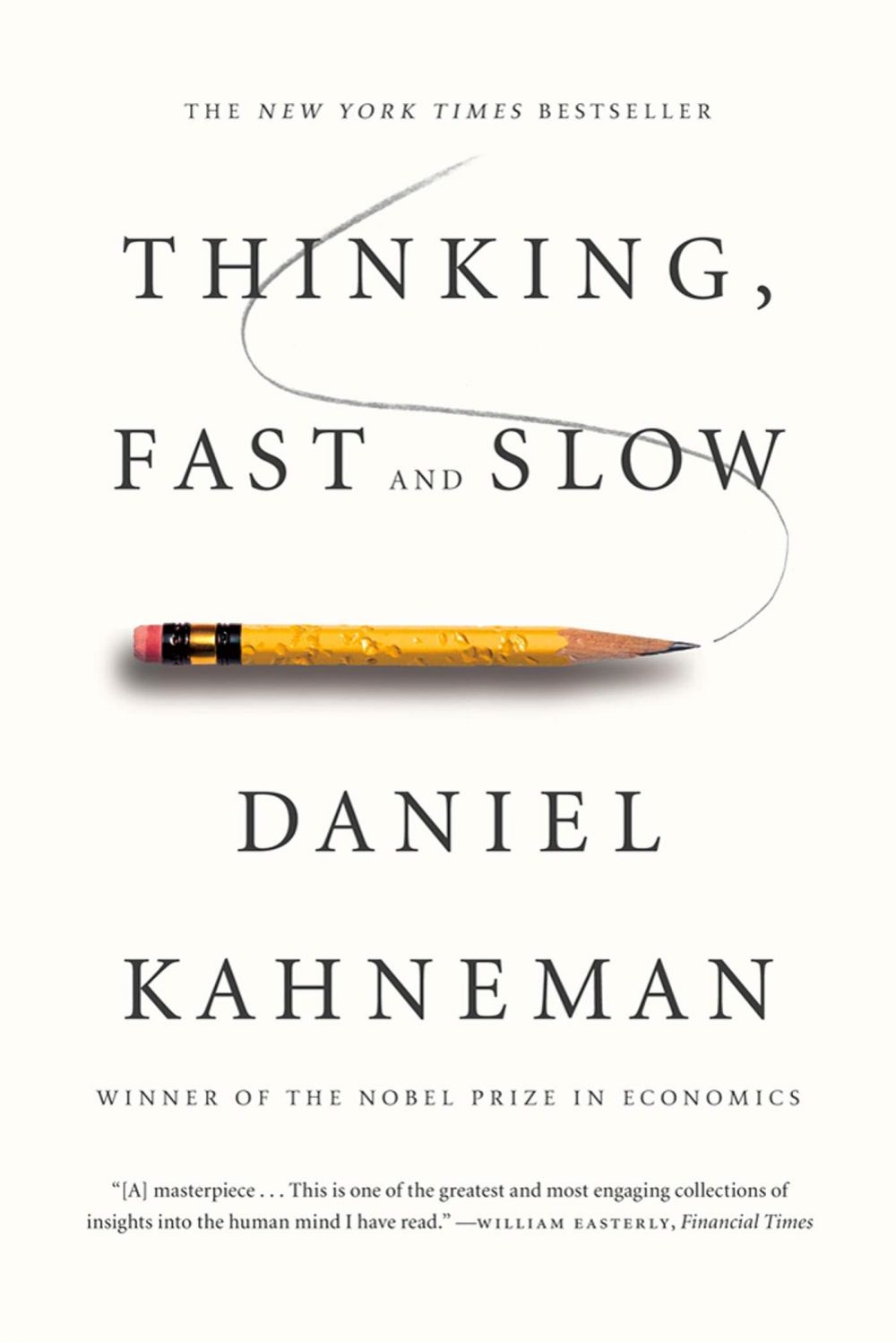Thinking, Fast and Slow
|
Present Company Included
This is a monster book packed with fascinating insights about how our cognitive systems process and render information. Its starting premise is that we have two discrete “systems” for mental processing. Daniel Kahneman, a cognitive psychologist who transformed himself into a Nobel Prize-winning behavioural economist, gives these the Dr. Seussian labels “System 1 and System 2”.
System 1 is fast. It makes snap judgments on limited information: it manifests itself in the “fight or flight” reflex. System 2 is more deliberative: courtesy of this, one meditates on eternal verities, solves quadratic equations and engages in subtle moral argument. Though this is interesting enough, their interaction is more fascinating still. System 1 is lightweight, efficient and self-initiates without invitation; bringing System 2 to bear on a conundrum requires effort and concentration.
This talk of snap judgments calls to mind Malcolm Gladwell’s popular but disappointing “Blink: The Power of Thinking Without Thinking”. Kahneman’s account, rooted in decades of controlled experiment, is a far more rigorous explanation of what is going on, and is able to explain why some snap judgments are good, and others are bad. This conundrum, unanswered in Gladwell’s book, is Daniel Kahneman’s main focus of enquiry.
It also invokes another popular science classic: Julian Jaynes’ idea of the “bicameral mind” [1] wherein there are large aspects of our daily existence, which we consider them conscious, really are not: driving by rote to the office, playing a musical instrument — these are also mental processes, I imagine Kahneman would say, undertaken by System 1. Jaynes was widely viewed as a bit eccentric: Kahneman’s work suggests he may have been right on the money.
It gets interesting for Kahneman where the division of labour between the systems isn’t clear cut. System 1 can and does make quick evaluations even where system 2’s systematic analysis would provide a better result (these are broadly the “bad” snap judgments of Blink). But System 2 requires dedicated mental resource (in Kahneman ugly expression, it is “effortful”), and our lazy tendency is to substitute (or, at any rate, stick with) those “cheaper” preliminary judgments where it is not obviously erroneous to do so (and by and large, it won’t be, as System 1 will have done its work). Kahneman’s shorthand for this effect is WYSIATI: What You See Is All There Is.
Kahneman invites the reader to try plenty of experiments aimed at illustrating his fecklessness, and these hit their mark: it is distressing to repeatedly discover you have made a howling error of judgment, especially when you knew you were being tested for it. This has massive implications for those who claim group psychology can be predicted on narrow logical grounds. The latter half of Thinking, Fast and Slow focusses more on our constitutional inability to rationally adapt to probabilities and soundly wallops the notion of homo economicus, the rational chooser each of us imagine ourselves to be. This is where Kahneman’s Nobel Prize-winning Prospect Theory and gets full run of the paddock.
Kahneman draws many lessons (which, by his own theory, doubtless will go unheeded) for scientists, economists, politicians, traders and business managers: “theory-induced blindness”; how we become (irrationally) risk tolerant when all our options are bad and risk averse when all our options are good, and how we systematically underweight high probability outcomes relative to actual certainty. For those with nerves of steel there’s a real arbitrage to be exploited here.
This long book is a rich (if “effortful”) store of information and perspective: it is not news that our fellow man tends not to be as rational as we like to think he is, but we are inclined strongly exclude present company from such judgments. Kahneman is compelling that we are foolish to do so: this is a physiological “feature” of our constitution: the “enlightened” are no more immune. This is a valuable and sobering perspective.
